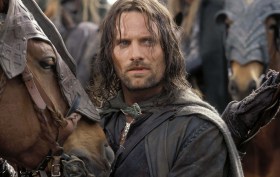I know you’ve heard the adage that ‘life imitates art’, and you know well that the opposite is true, too. Each year hundreds – maybe thousands – of new films are released, all packed with unique narratives that respond to something: maybe older films, other forms of art, social issues, or how the creator is feeling in that moment.
In 2022, there were a few trends that emerged in the narratives we saw on screen. Here’s what I noticed.
At the movies this year, we wanted to:
Eat the rich (Glass Onion, Triangle of Sadness)
It’s plain to see: we are tired of the wealthy elite and their carelessness towards others. In both Glass Onion: A Knives Out Mystery (out 23 Dec) and Triangle of Sadness (out 22 Dec) in particular, we saw people of enormous wealth realising that once you deduct that factor from their lives, they represent nothing. This resonates with today’s audiences because we are evidently sick of hearing about the elite breaking rules without consequence – and making life hell for everyone else (e.g. cruise ships arriving on our shores with hundreds of COVID cases; socialites ignoring lockdown orders; millionaires buying people’s silence with NDAs, and many many more).
How fitting that these two films are released in Australia right as we hit the biggest consumerist season of all!
Read: Triangle of Sadness review: eat the rich
Screw the gender binary (Neptune Frost, You Won’t Be Alone)
Discussions about one topic in particular were hotter than ever this year: that of transgender people and the imagined ‘threat’ they pose to conservative society. Right-wing parents feared that talking to children about gender vs sex early on would ‘turn’ their children trans. People were in uproar over the concept of gender-neutral bathrooms (i.e. the ones you have in your home). JK Rowling went full TERF (Trans-Exclusionary Radical Feminist) and lost thousands of fans to her extremist ideas. It was a hellish time for anyone trans on the internet, that’s for sure.
Afro-futurist experimental musical Neptune Frost was one of the standout flicks of the year that had a gender-swapping protagonist, as was (and this is a minor spoiler) Australian horror You Won’t Be Alone. Frost delved into the trans-narrative a little more by framing it as a metaphor for rebellion (I talk about rebellion and revolt as a theme further down this list). In both films, exploring gender was shown as a positive thing born from an instinctive feeling – you just know.
We also saw a significant number of non-binary characters in mainstream media, like Heartbreak High and Our Flag Means Death. I see this as a sign of a real, positive change in attitude towards gender-fuckery.
Read: Neptune Frost film review: a visual album that defies form
Embrace the multiverse (Everything Everywhere All At Once, Doctor Strange in the Multiverse of Madness)
However you call it: parallel dimensions or the multiverse, it’s obviously something we can’t get off our minds. Questions like ‘what if this life isn’t the only life we’re living?’ and ‘what if there are infinite Earths out there, and in one of them we’re not screwing everything up?’ open up worlds of possibility.
Escapism in general is always a theme among the major blockbusters of every year (see: every sci-fi, fantasy, and action/adventure film), and it’s easy to see why: life is bloody hard. A lot of bad things happen, all the time, to really good people. We’re killing the earth with human-driven climate change and it’s hard to see a way out of that.
So, is the multiverse our long-awaited escape route, or is it just way to put our little lives into perspective so that we can make the changes required of our present reality? In 2022, we saw both options play out, in films like Everything Everywhere All At Once and Doctor Strange in the Multiverse of Madness. It was mind-boggling: and damn fun, too.
Read: Doctor Strange in the Multiverse of Madness review: nearly magic
Re-examine our nostalgia (The Unbearable Weight of Massive Talent, Elvis)
The weight of fame is a theme that returns to Hollywood films again and again, and has been a popular topic to tackle since the dawn of cinema itself (just look at how many versions we have of A Star is Born). This year in particular, we focused on looking back on the lives of the rich & famous, and re-telling stories we thought we knew.
In The Unbearable Weight of Massive Talent, Nicholas Cage is … Nick Cage, but playing him as audiences imagine him to be. But it’s not just fan service, it’s a meta-narrative about the collision of actor and character, and through Pedro Pascal’s performance as his number one fan it’s also about the folly of nostalgia. Ultimately, nostalgia is a mysterious cloud that obstructs our vision of the past and its lessons. Hmm, maybe Nope deals with this too …
We also saw similar things play out in Elvis, except with the audience in the role of the super fans. Instead of a biopic about how great The King is, we got a maximalist explosion of a film from the perspective of his dodgy manager, Colonel Tom Parker. It does, however, rely heavily on the nostalgia factor for the majority of its story, so perhaps it’s unfair to compare it to the smartness of Unbearable Weight.
Read: Elvis by Baz Luhrmann review: it’s one for the money
Revolt against our oppressors (RRR, Black Panther: Wakanda Forever, Avatar: The Way of Water, Woman King, Matilda The Musical)
I’ve sensed a collective desire for revolution in our art for some time now. Not only in movies did we see this theme – it was also marvellously executed in Disney+’s Andor: a show about the radicalisation of rebels under the boot of the Galactic Empire made so famous in the Star Wars franchise.
Indian epic RRR is the most obvious one to tout this theme. It’s about two revolutionaries forming a life-long bond and fighting for freedom together (it’s also got the catchiest songs of the year IMO). The colonising British get taken down in such spectacular fashion that I nearly leapt to my feet to cheer.
Likewise, Woman King also tackled historical revolutions with a group of all-female warriors protecting the African kingdom of Dahomey. Then we had the Black Panther sequel expanding the fictional world of Wakanda and the systems they must continually fight against to keep their techno-paradise functioning.
On a much smaller scale, this Christmas we’ll see the release of the musical version of Matilda on Netflix. The show-stopping number, titled ‘Revolting Children’, isn’t just a play on words: it’s a call to arms. In the past (but much more recent than you might think), children have been viewed as creatures that should be ‘seen and not heard’, with very minimal rights afforded to them. The overarching message of Matilda the Musical is that children should be taken more seriously – and gives them permission use any means necessary to achieve this.
Read: Black Panther: Wakanda Forever review – a triumphant epic of loss





